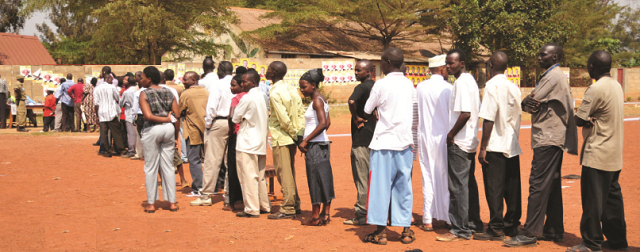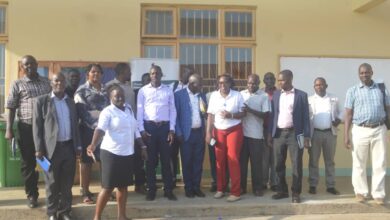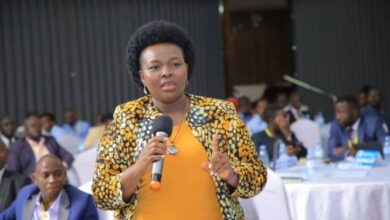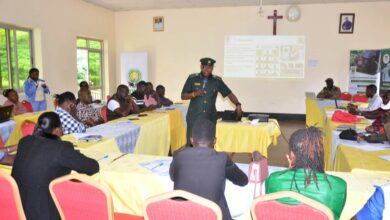Masindi residents call for secret ballot in LC1 elections
The financial implications of transitioning back to secret ballots are undoubtedly a significant consideration for the Electoral Commission.

Masindi: The residents of Masindi have raised concerns about the current practice of lining up behind candidates during LC1 chairpersons’ elections.
According to residents, lining up behind candidates can create tension and animosity among neighbors, especially when family members support different candidates.
The concern was raised during a one-day civic education on strengthening citizens in elections organized by the Forum for Women in Democracy (FOWODE) held on Friday, May 17, 2024, at Kimanya Church of Uganda and St. Peters Church of Uganda Kadukulu, respectively.
Jolly Mbabazi, a resident of Kimanya village, stressed that the public nature of this process may exacerbate existing conflicts.
‘’Pregnant women and people with disabilities face difficulties standing in line for extended periods. This can lead to exclusion and prevent them from voting for their preferred candidates.’’
John Mbabazi, a resident of Kadukulu village, says that secret ballots provide privacy, allowing voters to express their choices without fear of repercussions.
‘’When votes are public, individuals may feel pressured or coerced into supporting specific candidates.’’
Mbabazi asserts that some candidates may have health issues that make standing in line a challenge, noting that ensuring a more accessible voting process is essential for everyone’s participation.
Enosi Mugisa, the LC1 Chairman for Kimanya Village, pleads for secret ballots, saying there’s a need for a more inclusive and respectful electoral system.
While financial implications must be considered, finding a balance between transparency and privacy is crucial.
Evarist Twinomujuni, the Masindi district electoral commission returning officers clarifies the adherence to existing constitutional provisions, even though there’s a desire to revisit the process.
The financial implications of transitioning back to secret ballots are undoubtedly a significant consideration for the Electoral Commission.
Timothy Twesige, the district councillor representing Budongo sub-county, commended FOWODE’s civic education efforts, underscoring the importance of informed voting.
‘’Educating voters on proper procedures can indeed reduce invalid votes and enhance the democratic process. It’s unfortunate that government-led civic education programs are not as widespread as they could be.’’
Oliver Byabakama, community facilitator at FOWODE, says that the program aims at preparing and educating the electorate ahead of the 2026 elections.
‘’Empowering citizens with knowledge about their roles and responsibilities contributes to a more engaged and informed electorate,’’ she adds.
Do you have an advertisement or article you want to publish? Mail us at theugreports@gmail.com or WhatsApp +256757022363.






